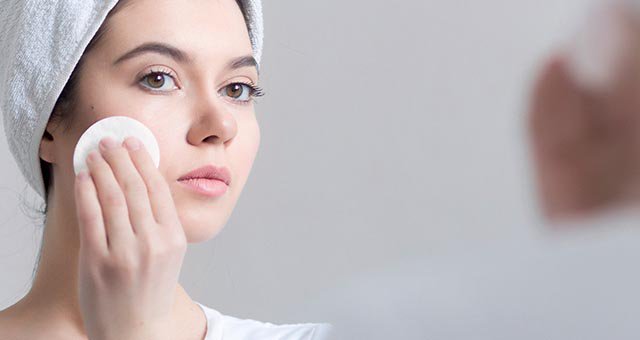Does your skin look shiny within an hour after applying powder or makeup? Do you always need to retouch or use an oil blotting paper whenever you go out? Do you also have frequent breakouts even when you’re meticulous about your skin regimen?

If your answers to these are yes, then you probably have oily skin.
It’s Both Bad and Good
Oily skin types usually have larger pores, but people with combination skin types only exhibit excessive oily skin on the T-zone of the face and some portions of the cheeks. Most people with oily skin also have acne, because the skin produces too much sebum. The cause can be genetic or hormonal changes, so you will have to deal with your oily skin for the rest of your life.

The good news, however, is that it’s better than having dry skin, because oil slows down aging and gives your skin a natural lubricant. The goal of the treatment of oily skin, therefore, is to reduce the breakouts and amount of oil, not to eliminate it entirely.
Use the Right Moisturizer
So, does that mean you don’t need to use moisturizer anymore? You skin still needs a moisturizer, but you have to be careful when choosing products. Avoid any skin cosmetics that are greasy and heavy with moisturizers, like lotions, soaps, cream, ointments, and makeup. Look for products that are non-comedogenic and oil-free. If some parts of your skin are drier than others, you might want to use two different types of moisturizers. Remember that if your skin gets dry, it can also cause your glands to produce more oil, which is counterproductive.

Always Look for Oil-Free Products
The labels oil-free and non-comedogenic should not just be considered when choosing moisturizers, but also with all the skin and hair products that you’re using. If your face is oily, your scalp is too, so use hair products that doesn’t contain a lot of moisturizers. When choosing your makeup, pick only products that are oil-free, fragrance-free, and non-comedogenic. Then make sure to clean your face before applying makeup and before going to bed. Lastly, use an oil-free sunscreen to protect your skin from UV rays.
Use Blotting Papers, Tissues, and Sheets

Ideally, you should wash your face twice a day, but excess oil can’t be avoided, so use blotting papers, tissues, and sheets for such events. Avoid touching your face as much as possible or using your handkerchief to blot out the oil. Do not wipe your skin, instead, blot with a regular paper towel or a special absorbing sheet and do not use tissues that contain extra ingredients, because these can clog your pores.
Talk to Your Dermatologist
If you have other skin conditions, such as acne, talk to your dermatologist about treatment options. Do not use products that your dermatologist did not recommend if you’re undergoing treatment, because they can react differently with those that were prescribed for acne and oily skin.




Leave a Reply